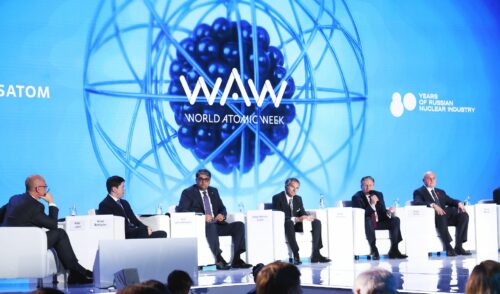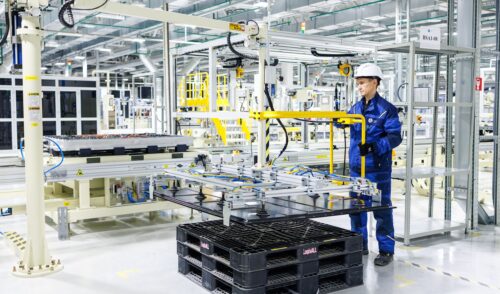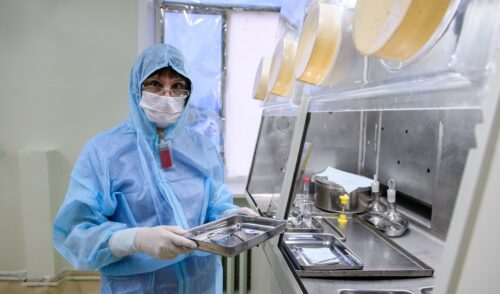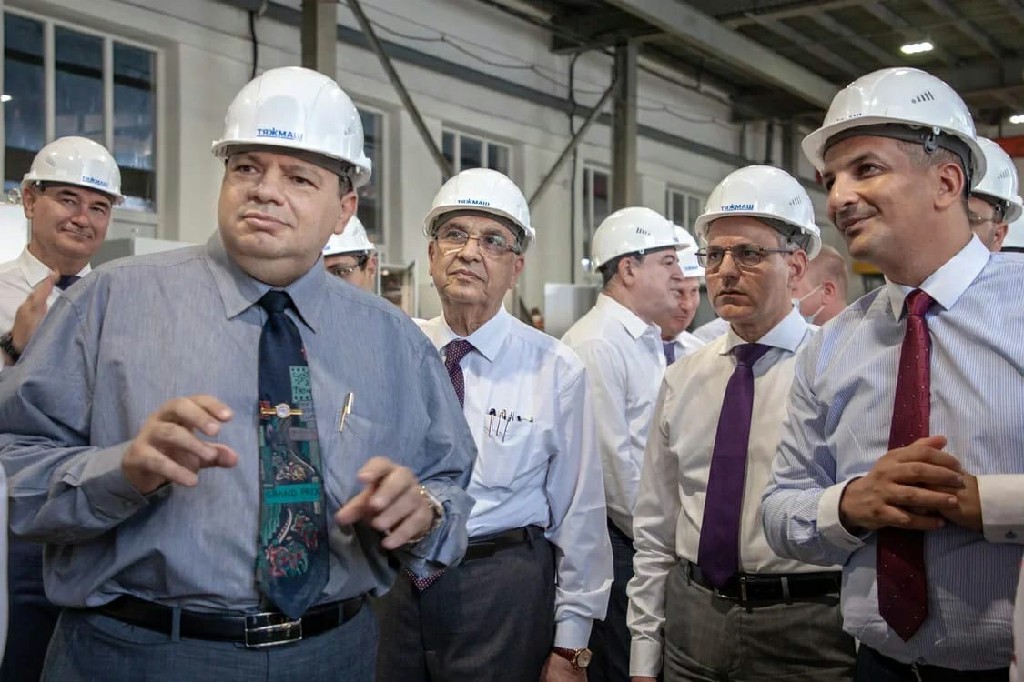
Safety at Core
back to contentsEl Dabaa NPP will follow the highest safety standards, President Abdel Fattah al-Sisi guarantees. Egypt’s top-rank officials praise the substantial progress on the construction project, which is now at its preparatory stage.
President of Egypt Abdel Fattah al-Sisi has given instructions to follow the strictest international safety standards at El Dabaa Nuclear Power Plant. The president stressed the need to coordinate activities between all the government bodies involved in the project, including the Nuclear Power Plant Authority (NPPA), Egyptian Nuclear and Radiological Regulatory Authority (ENRRA), and General Authority for Urban Planning (GAUP). It is also planned to conduct a large study in association with the Central Agency for Public Mobilization and Statistics (CAPMAS) to forecast the population growth around the future power plant.
Egypt’s top-rank officials keep a close eye on this national priority project. In July, Minister of Electricity and Renewable Energy Mohamed Shaker said the nuclear construction project had gained a positive momentum. The Egyptian nuclear program is fully supported by the country’s political leadership, while the Egypt-Russia professional team is ready to resolve any challenges they face, he stressed.
According to Ihab Nasr, Egyptian ambassador to Russia, the construction of El Dabaa moves forward as scheduled and the Russian and Egyptian parties are satisfied with the progress of the project. El Dabaa is “the largest ever project in the history of the Russian-Egyptian relations under control of President of Russia Vladimir Putin and President of Egypt Abdel Fattah al-Sisi,” El Balad daily quotes the ambassador as saying.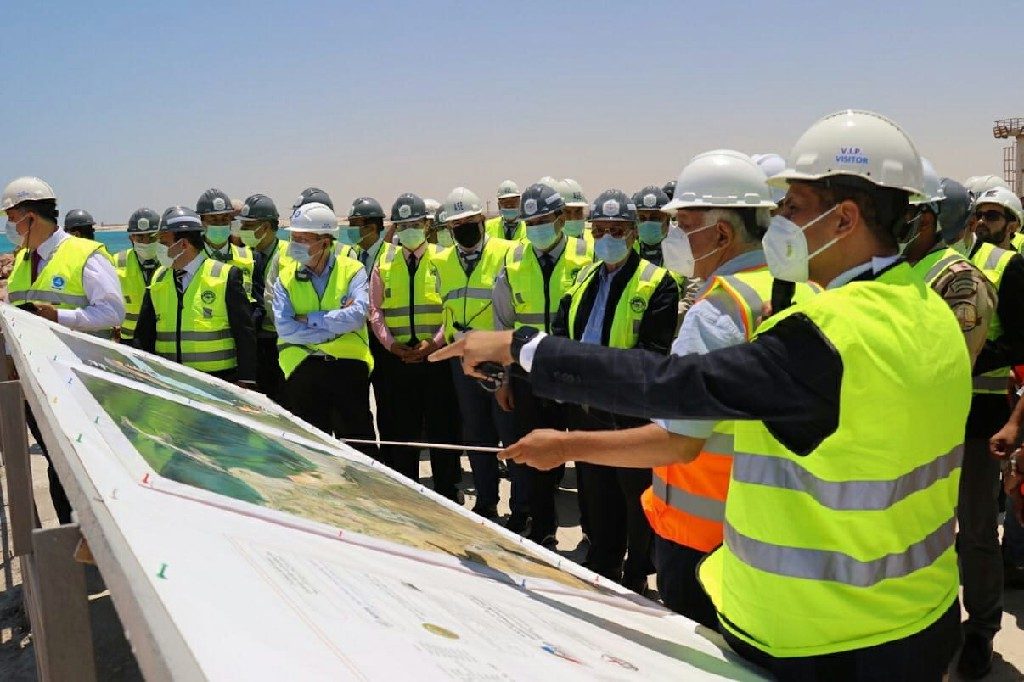
In the framework of contracts pertaining to the construction of Egypt’s first nuclear power plant Rosatom conducts training of Egyptian specialists. In early September, the first groups of specialists from El-Dabaa began training at the St. Petersburg branch of Rosatom’s Technical Academy.
The training programme for the personnel of the nuclear power plant currently under construction in Egypt will be inaugurated with a six-month Russian language course, which will have an enrollment of 465 Egyptian students. After that, the Egyptian specialists will start their theoretical training course on the basis of a reference Rosatom nuclear power plant and will undergo practical training and internships at Leningrad NPP-2 and at other workplaces. Rosatom will train about 1,700 specialists in the framework of this programme by 2028. The programme will take place at both Rosatom Technical Academy in Russia and the Nuclear Power Plant Training Centre in Egypt.
Grigory Sosnin, Vice President, Director of the El-Dabaa NPP Construction Project of JSC ASE, noted the importance of training the personnel of the nuclear power plant currently under construction in a timely manner. “This is a long-awaited event for us. The great Russian commander, Alexander Suvorov, said that learning is light and ignorance is darkness. Russia will become a second home for Egyptian trainees and nuclear knowledge will bring light to your homes,” he said.
According to the rector of Rosatom Technical Academy Yuri Seleznev, the St. Petersburg branch has made efforts to further equip its training facilities and modernise its IT infrastructure to improve the quality of training of personnel. Instructors, amongst them both experienced operators who have worked at nuclear power plants for many years and young specialists who have completed long technical training courses, have had internships at nuclear power plants, and are fluent in English, have been prepared to conduct trainings. An analytical simulator is also expected to be commissioned at the training site by the end of the year. Students’ living conditions were also improved, taking into account the cultural characteristics of the Arab country, in the framework of an investment project for the development of Rosatom Technical Academy.
Over the last seven years, Egypt implemented more energy projects than over the previous 70 years, Hani Dahi, Head of the Syndicate of Engineers, said at a seminar held in August. As recently as 2014, he pointed out, energy production in the country met only 75% of Egypt’s needs. Today, the country has a surplus of electricity because its installed capacity has grown from about 30,000 MW to more than 75,000 MW since then.
The Syndicate of Engineers’ members appreciated the efforts taken by the NPPA. “We are sure that the national nuclear program is in good hands of experienced and trustworthy Egyptian professionals. We wish them success and remain confident that the program will be carried out in full and the best way possible,” they say.
NPPA Chairman Amged El-Wakeel spoke about three main stages of El Dabaa project. The first stage comprises site preparations for the plant construction. The second stage starts when a construction license is obtained and includes all the activities related to construction, staff training and preparations for cold and hot tests. The third stage begins with obtaining a pre-operational test permit and comprises functional tests and achieving first criticality. This stage lasts till the first reactor unit is accepted and an operating license issued.
Hassan Abdel Alim, General Secretary of the Syndicate, noted that construction of the first nuclear power plant in the country was an ambitious and promising project for both Egypt and the entire African continent. He added the project would give an impetus to economic development of the country and help achieve the goals of the National Sustainable Development Plan for a period until 2030.
El Dabaa Nuclear Power Plant will have four units with VVER-1200 reactors. Many countries choose VVER-1200 technology for its advanced safety features recognized by the IAEA. This technology is already in use at four power units in Russia – at Leningrad and Novovoronezh NPPs – and at one power unit in Belarus. Moreover, VVER reactors will be installed at several power plants currently under construction in Hungary, Finland, Turkey, Bangladesh, and Belarus.
In order to introduce key operating principles of VVER reactors and nuclear plants to the general public, Rosatom organized a virtual press tour to the Leningrad NPP (Russia) for leading Egyptian media.
During the virtual tour, its participants were explained how Leningrad II and its two units with Generation III+ VVER-1200 reactors operate and what contribution the plant makes to the economic, social and infrastructural development of the region. Journalists were shown 360-degree photos of the turbine island, main control room, personnel training center and even the reactor island, access to which is usually restricted.
“Today, we offer a once-in-a-lifetime opportunity to visit a nuclear power plant and talk to Russian nuclear experts online, literally from the screen of your personal device. This year, we will organize five virtual tours to Russian nuclear facilities, including the floating power plant,” said Nikita Konstantinov, Deputy CEO and Director for Business Development at RosEnergoAtom.
The tour ended with a Q&A session, during which journalists got detailed answers and comments about the Leningrad NPP and VVER-1200 technology.


